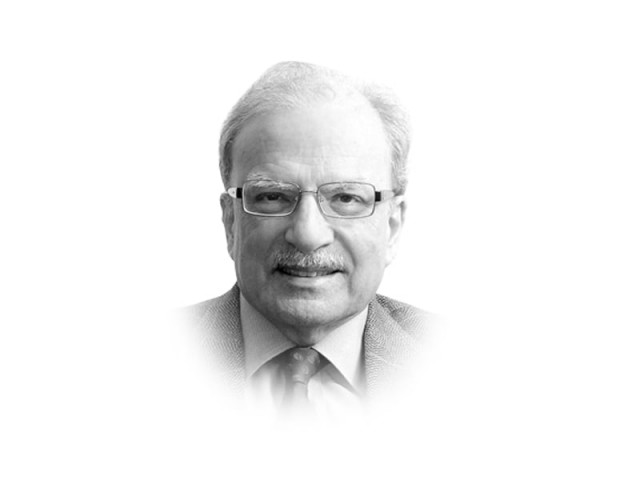Making the system inclusive
One way of moving from extractive to inclusive is to dispense with the control of families over political parties.

Making the system inclusive
An important recent book by James Robinson and Daron Acemoglu, two economists from Harvard University and the Massachusetts Institute of Technology respectively, suggests a close link between political and economic development. To argue that politics is an important determinant of economic change is relatively rare for economists. That is not so for political scientists who have been postulating such a link for decades. Samuel P. Huntington of the ‘clash of civilizations’ fame, pointed out in a work published more than 40 years ago that the association between political and economic change runs in both directions. His important finding based on a number of case studies that included Pakistan, was that rapid economic growth can be politically destabilising in the absence of institutions that can absorb the shocks and tensions that inevitably follow.
Viewing change from the perspective of economics, Robinson and Acemoglu reach a number of important conclusions. Two of these are important for understanding what is happening in Pakistan at this critical juncture in its history. Political progress is not inevitable, they maintain. The outcome is “never certain and even if in hindsight we see many historical events as inevitable, the path of history is contingent”. The same point is made by Francis Fukuyama in his recent book on the origins of political order. According to him history is littered with examples of political development being followed by political decay.
The lesson for Pakistan is obvious: people as well as institutions interested in seeing the political system evolve in the right direction need to remain vigilant lest slippage occurs. This has happened many times in Pakistan’s torrid political history. Four times the military’s intervention was accepted by the people — sometimes with considerable enthusiasm — since there were no viable alternatives available to address the problems the country faced at that time. Also, the military did not face any challenge to its move into the political arena. This is no longer the case. Now the citizens are confident that the country can be better managed by their representatives. If the representatives disappoint they can be removed through the electoral process. The citizens have also learnt to have their voices heard. This happened during the ‘black coats’ movements that helped to restore to their positions the judges fired by President Pervez Musharraf, an autocrat. Now, with the powerful precedence of the Arab Spring, the citizens feel even more equipped to raise their voices and be heard.
The second conclusion is even more powerful from Pakistan’s perspective. Robinson and Acemoglu argue that “countries differ in their economic success because of their different institutions, the rules influencing how the economy works, and the incentives that motivate people”. In that context the book differentiates between two different types of political institutions, each producing its own economic dynamics. There are ‘extractive political institutions’, which serve the interests of the few at the expense of the many. This is where most of Pakistan’s political parties are today. They cater to the interests of the few at the expense of the masses. This is the reason why the country is following economic policies that provide rich rewards to narrow interests — the political elite. One sign of healthy political development will be to have these extractive institutions become ‘inclusive’.
The defining characteristics of inclusive institutions in both the economic and political fields are the combination of centralisation, the rule of law, and pluralism. Power resting with a strong political entity at the center of the system would ensure that private interests can be checked. At the same time, the power of the central authority must be constrained by law and by instruments that ensure accountability.
These two types of institutional structures influence one another. Extractive political institutions produce extractive economic institutions. The influence can move in the other direction as well. The same holds for inclusive institutions. Inclusive institutions in politics will create inclusive economic institutions. It is right to suggest that at this point in time, Pakistan’s political and economic development is stuck at the extractive stage. One way of moving from the extractive to the inclusive stage is to dispense with the control of families over political parties. Dynastic politics provides party governance at the national as well as the regional levels. Democracy must be practiced not only for providing good governance, it must also be adopted by the parties that dominate the political landscape.
Published in The Express Tribune, March 12th, 2012.













COMMENTS
Comments are moderated and generally will be posted if they are on-topic and not abusive.
For more information, please see our Comments FAQ